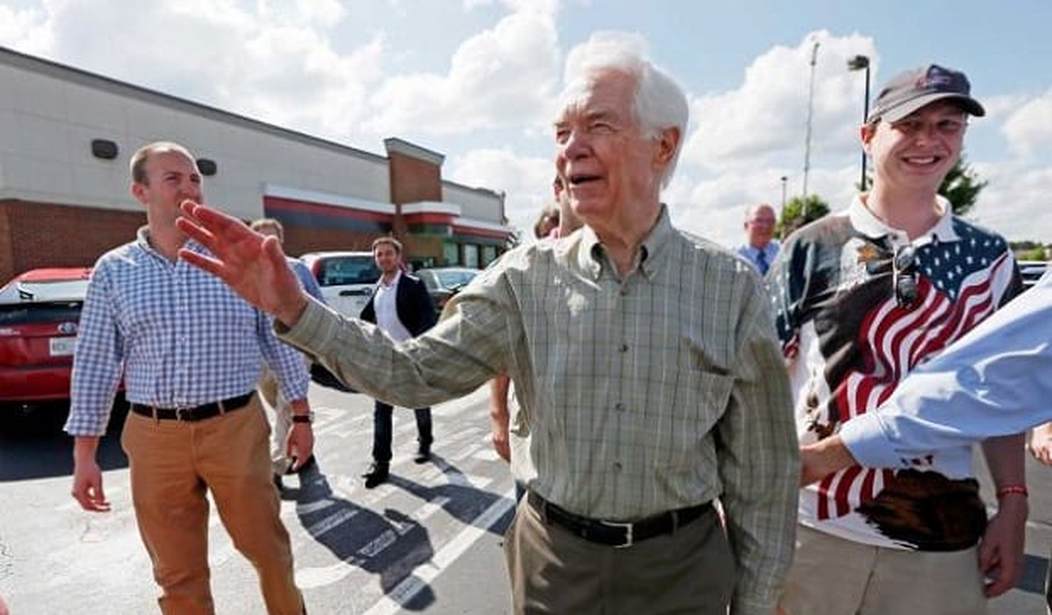Today is runoff day in Mississippi. We should not underestimate the ability of Haley Barbour to turn out voters for Thad Cochran. It will be a case of motivation of the voters. And that is exactly why runoffs tend to be nasty, horrible affairs. Runoffs are not about voter mobilization. They are about voter suppression. I say this as someone who has consulted on and managed more than one runoff and winning more than losing.
In a primary or general election, candidates target voters. They get obtain a list of registered voters from the Secretary of State or elsewhere; they identify the voters most likely to vote and those who can be persuaded to vote; they make repeated contacts with those voters by mail, by phone, and in person; they keep a list of who they have persuaded; then they mobilize them to vote.
They do this, if the campaign is coordinated, on a precinct by precinct basis. A good campaign knows how many votes it needs in each precinct of each county and does its best to identify the voters in those precincts who will vote. The campaigns spend their time trying to boost their positive name identification, etc. to get the voters to turn out.
Here’s the problem with a runoff — there is rarely time to identify all the voters who voted and those who could have but did not. There is rarely time to generate a new round of voters and get them to the polls. So the presumption typically changes.
The change is simple: presume your diehard supporters will turn out and, while remobilizing them try to suppress the other side’s voters. That is done with attacks.
Typically, there are voters who did not vote in the primary, but would go vote in the runoff. With such a short period of time, those voters are a wild card. There may not be time to identify them and, given that they did not show up on election day, they may not be reliable anyway. So attack the opponent and hope those voters get fed up and stay home. That neutralizes a wild card in the runoff.
If a campaign presumes that its voters will turn out even despite awful attacks on their candidate, it frees up resources to suppress the opponent’s voters by making them second guess their support. Since both sides make the calculation that the other guy’s support is weak, they both go very negative.
At the same time, they rework through their list of known supporters from the prior election and try to keep those voters engaged. Some of them, too, get burned out on the nastiness and stay home. That makes the ground game even more important in the runoff. Part of the ground game is keeping the other side’s support at home.
There are two catches to all of this that I have learned through experience and seen in other races.
First, I have frequently seen the loser in the runoff actually win the absentee vote. Passions flow quickly headed into runoffs. So the passionate go vote early by absentee and then don’t show up on election day. They’ve already checked out, they’ve done their bit by voting again, and they don’t help out till the end as other supporters are being suppressed through attacks on their candidate.
Second, though my runoff experience has been state and local legislative races, from my experience if the race is within five points headed into a runoff, the second place challenger often wins. Why? Because the first place guy did something to get ahead and that something is usually pissing off all the other candidate’s voters. So the second place finisher and the other candidates’ supporters tend to rally for the second place candidate. There is one exception to this that I have seen. If the race is close and the incumbent has been forced into a runoff in second place, the challenger tends to win. There just isn’t enough time to re-mobilize, doubts have been sown about the efficacy of the incumbent, and the energy tends to be with the challenger. If the incumbent is the one in first place, the incumbent tends to win the runoff because of rapid consolidation of incumbency support.
All that said, as much as I want Chris McDaniel to win and the odds seem in his favor given the history and statistics of runoffs, I would never bet against Haley Barbour and company in Mississippi. In fact, if McDaniel is able to beat Team Barbour, Katie bar the door. It’s going to shake up the monopoly in Mississippi politics. And that is exactly why Team Barbour is playing for keeps. If McDaniel wins the runoff, I expect a concerted effort by Republicans to sabotage him in the general in order to stop the tsunami his win would bring.














Join the conversation as a VIP Member